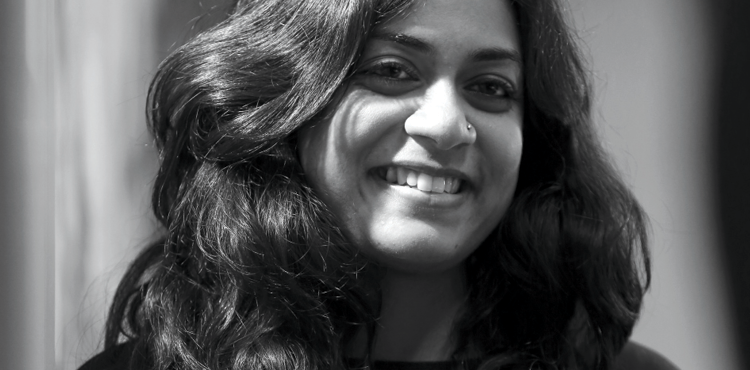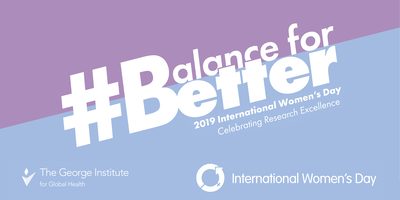
Devaki Nambiar: International Women's Day 2019 Profile
With close to 20 years’ experience as a social scientist and a decade as a researcher in numerous countries, Devaki Nambiar joined The George Institute for Global Health a year ago to focus on health system reform and social exclusion in health.
Devaki was first attracted to public health by its combination of disciplines, emphasis on wellbeing and historical connection to social justice. Growing up in a diplomat family had exposed her to numerous cultures as a child, and implanted a curiosity and drive to improve the lives of those less fortunate than herself.
“I find inspiration in the incredible generosity and compassion I have seen among those with so little...I wish health systems could care for others the way that the people they often fail do.”
“I believe research allows one to walk a mile in someone else’s shoes and also use rigour and systematic thinking to improve the conditions we all live in, starting with those who face the greatest difficulties and injustices.”
Devaki considers equity, or lack of it, one of the biggest global concerns today, evident by the vast disparities in health-related circumstances and outcomes across population subgroups. Her future career aims remain firmly fixed on building on her past work in this area.
“Equity research, to be ethical, has to be concerned with making the situation of others equitable. I aim to harness knowledge and research for health equity in societies that is ethical, reflexive, adaptive and responsive. I will work to build connections with, support for and representation of people who face health challenges – both hidden and in plain sight.”
She believes women’s journey in the research sector is only just beginning and there needs to be reform in both the public and private spaces for true progress to occur.
“Right now, women at the apex of health and research organisations and programs tend to be few and far between, and are seen as exceptional. We need to acknowledge this gender gap and foster leadership among unrepresented groups like women from early stages.”
“We also need to create an enabling environment for all carers – across genders – to participate in tasks at work and at home, and for Pete’s sake – EQUAL PAY!”
For Devaki, ‘balance’ means evolution in both her thinking and career mindset.
“Before, I thought balance meant keeping control, avoiding distractions, and focussing on maintaining balance. Now I’m realising balance is about sharing control, mindfulness and acceptance of the impermanence of balance.”
“That applies to me in the day-to-day of my life, of course, but I’m realising that it is an approach that society could also take so we can move past the legacies of patriarchy and intolerance that have stood in the way of balance and equality.”



